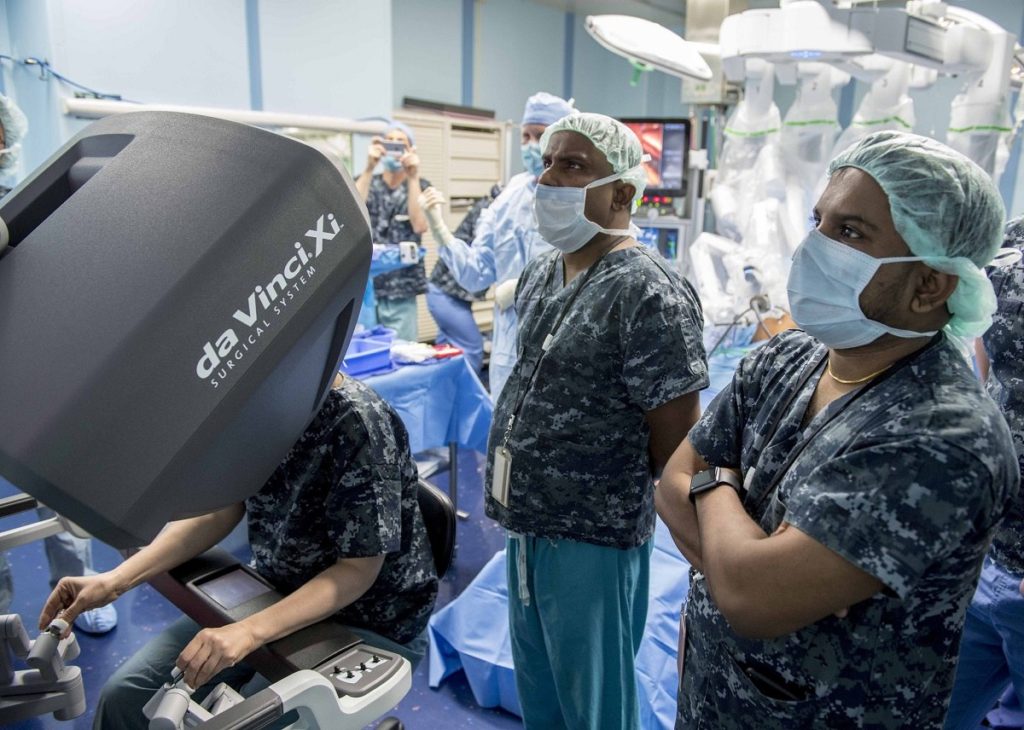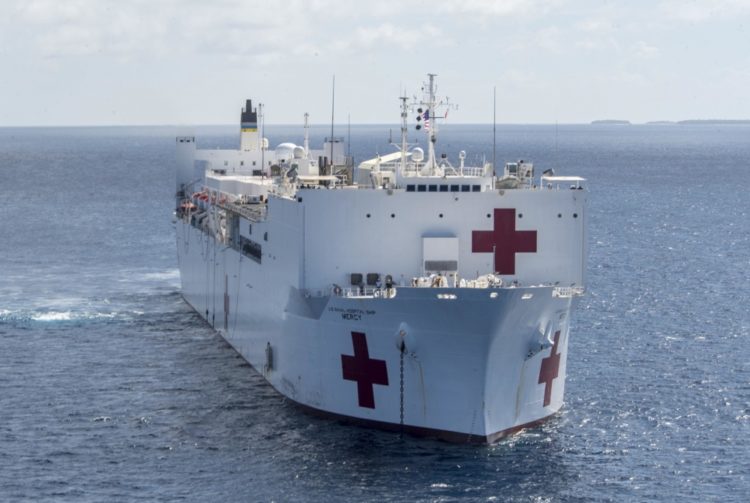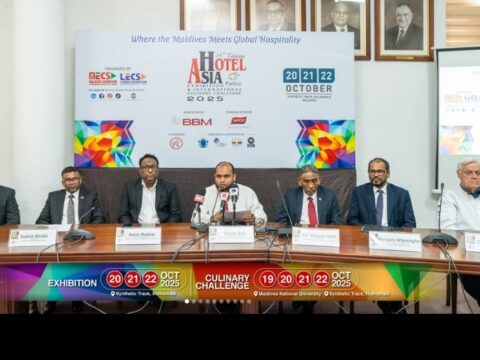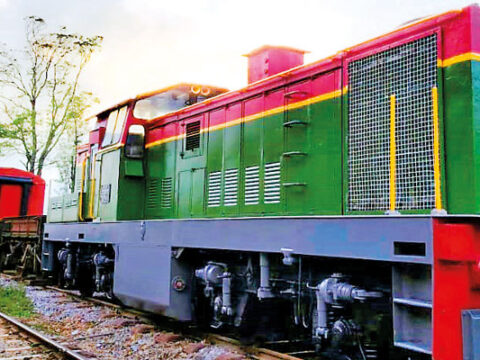TRINCOMALEE: The surgical staff assigned to the US Navy hospital ship Mercy, alongside partner surgeons from Sri Lanka, completed the ship’s first ever robot-assisted surgery on May 4.
Using the Da Vinci XI Robot Surgical System, the multinational surgical team removed the gall bladder of a Sri Lanken citizen, marking the first time the Da Vinci Robot has been used on a living patient onboard a ship from any country.”
“This was a historic moment for both Sri Lanka and all the partner nations,” said Navy Lt. Cmdr. Kyle Gadbois, director of surgical services aboard Mercy. “Not only was this the first time the Da Vinci XI Surgical System has been used on a patient while aboard a ship, but it also marked the first robotic-assisted surgery to be conducted in Sri Lanka.”
The Da Vinci robot is a minimally invasive system that allows surgeons to operate through only a few small incisions. After the insertion of a high-definition 3D camera, surgeons control robotic arms that employ tiny instruments that bend and rotate into positions the human hand is incapable of, allowing for greater precision and control.
In performing the ground-breaking procedure, preparation between the partner nations was critical.
“This surgery took a lot of planning before we actually performed it aboard the Mercy,” said Navy Cmdr. Tamara Worlton, a surgeon from Walter Reed National Medical Center currently assigned to Mercy.
Sri Lankan surgeons had to prescreen candidates prior to the Mercy’s arrival to ensure the surgery went smoothly, Worlton added.
“I believe the surgery was a success because of the continuous collaboration between our partner nation’s medical staff prior to the surgery, where we discussed different surgical techniques the different countries do and how it could be incorporated,” Worlton said.
 For the lead Sri Lankan surgeon, Dr. Vyramuthu Varanitharan, the surgery was the first he’d ever performed aboard a ship. The operating environment onboard Mercy surprised him significantly.
For the lead Sri Lankan surgeon, Dr. Vyramuthu Varanitharan, the surgery was the first he’d ever performed aboard a ship. The operating environment onboard Mercy surprised him significantly.
“It is very stable and doesn’t move around,” he said. “It felt as if I was doing surgery in an operating room in a hospital. It was a fantastic experience to have been able to do surgery on a hospital ship, and it is something my team and I will never forget.”
Once the procedure was complete, the patient was moved to post-anesthesia care onboard Mercy and was later discharged from the ship “in excellent condition.”
“It was an exciting experience, and I am thankful for the opportunity to have been a part of this ground-breaking moment for the surgical field,” Gadbois said.
US Navy Hospital Ship, USNS Mercy arrived in Sri Lanka on 25 April to facilitate the Pacific Partnership 2018 programme. Berthed at the Trincomalee Port since then, it departed Sri Lankan waters on 9 May.
The hospital ship, equipped with the state of the art medical equipment, provides a platform for military physicians and other medical personnel of Sri Lanka to exchange expertise with counterparts of partner nations of the Pacific Partnership programme.
Pacific Partnership is the largest annual multilateral disaster response preparedness mission conducted in the Indo-Pacific. This year’s mission includes military and civilian personnel from the United States, Canada, United Kingdom, Australia, France, Peru, and Japan.
The mission in Trincomalee saw Pacific Partnership doctors and medical personnel working side-by-side with Sri Lankan medical professionals to exchange best practices. Additionally, U.S. and partner nation service members joined their Sri Lankan counterparts in civil engineering projects, humanitarian assistance and disaster relief (HA/DR) readiness seminars and public outreach engagements throughout the local community.
“I am very excited to see our team working with side-by-side with the people of Sri Lanka,” said Capt. David Bretz, the mission commander for Pacific Partnership 2018. “Through Pacific Partnership, we are building bonds of trust, friendship and partnership with the Sri Lankan people that will help us prepare together for a multitude of contingencies that our nations face with manmade and natural disasters. We are honored to be guests in this country and work beside our Sri Lankan counterparts.”
“We’ve continued to build upon the partnerships we forged during prior Pacific Partnerships,” said Capt. David Bretz. “The teamwork I saw between the Sri Lankans and all of our partner nations gives me great confidence that as we leave here we are all better prepared to respond to potential disasters.” (Navy Times and News Release).




